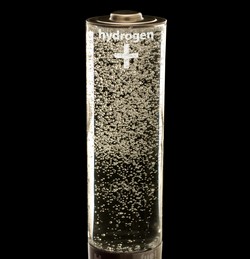Alternative electrode materials for fuel cells
High-temperature polymer electrolyte membrane fuel cells (HT-PEMFCs) that generate electricity from hydrogen either through diesel or methanol reforming have attracted considerable interest. Thanks to their higher operating temperature range – typically between 150 and 180 oC – their use leads to smaller and cheaper combined reformers. An HT-PEMFC-based generator could be integrated into a vehicle using available liquid fuels, including gasoline and methanol. The EU-funded project ARTEMIS(opens in new window) (Automotive PEMFC range extender with high temperature improved MEAs and stacks) advanced such an HT-PEMFC stack with operating temperature of at least 130 oC for automotive applications. Researchers developed alternative materials for MEAs that will be integrated into a 3 kW electric HT-PEMFC stack. The MEAs are based on membranes made of synthetic fibres with a high melting point and improved catalytic layers. The latter require lower loading and provide high efficiency at high temperatures as well as high tolerance to pollutants, like carbon monoxide. The ARTEMIS team firstly fabricated MEAs with commercial reference materials and progressively integrated the newly developed components into MEAs to assess their compatibility. For the characterisation and validation of materials and components, they defined specific protocols. The new lightweight materials proved to maintain their mechanical strength, chemical stability and conductivity. Focus was then placed on developing highly acid-doped polymer membranes as well as supports and anode and cathode catalysts that are able to withstand temperatures between 150 and 180 oC. Researchers achieved a significant reduction in platinum group metal catalyst loadings when compared with those currently used in HT-PEMFCs. ARTEMIS worked to address challenges facing fuel cells for automotive applications but there are significant spillover benefits for specialty vehicles, distributed power generation and even accelerated processing units. New research and development efforts will include demonstrations in MEAs, in stacks, at the subsystem and system levels.







